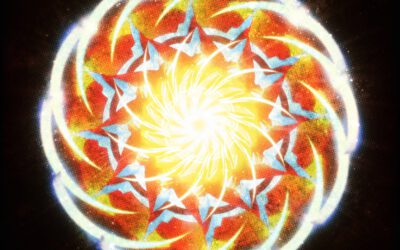By: Frank van Kasteren
Since I was young, I know that my father isn’t good at anything. As a kid I played at a football club, where all the dads were on the sideline. One by one they talked about that time they almost became professional soccer players, all single one of them. My father always kept to the story about that time he made an own goal. ‘In the upper corner of the goal,’ he added, ‘with a sliding’. He wasn’t a good soccer player, but he didn’t mind, because he liked it.
Every two months Hans came to our house for a game of chess. Hans was a friend of my father’s, or actually chess partner, I never saw Hans on birthdays or other occasions. Hans only came to play chess. As a child that made perfect sense to me, because Hans did look like a chess player. (If you wonder what Hans looked like, imagine a chess player and there he is). My father used to be a bit nervous every time Hans would come over. He told me that Hans always won. My father wasn’t good at chess, but he didn’t mind, because he liked it.
He plays the guitar, my dad. Often he used to sing songs for us, but since I started playing guitar for a living, he stopped doing it in my presence. The other day I heard him softly strumming my guitar at my place, while I was on the toilet. (Yes, I sat ON it, I never understood why men pee upright in a normal toilet. It splashes, seriously, it’s filthy.) I heard Dafne enter the living room and say: ‘Hey Aad, how nice, you play the guitar!’ My father: ‘Well it’s nothing, just messing around. Frank didn’t hear it right? Don’t let him hear it.’
I asked my father what it’s like to lose your mother. How do you do that?
It was always there, with everything he did. During a crossword puzzle, a cryptogram, the National Dictation, during birding, during running, cooking, gardening. With everything he did, he managed to mention that he wasn’t good at it or didn’t know much about it. But he also made sure he didn’t mind, because he liked it. The same goes for his work, he’s a teacher at a primary school. My mother was too. Since I was a little boy I knew that my mother was a very good and nice teacher. She was proud of that. And I was too. I was proud of mom. My father wasn’t proud of himself. The only part of him he was proud of, was my mother. He was proud of being with her.
I was proud of him. Because he was so sweet. That’s what my mother always used to say: ‘Your father is so sweet!’. He never rejected a person, because he genuinely believes that everyone is better or bigger than he is. He never understood what my mother saw in him, but he didn’t mind, because he liked it.
My mother died about four years ago. A couple of months before she passed away, during a walk through Rome, I asked my father what it’s like to lose your mother. How do you do that? My father lost his mother at the age of 21, also from cancer. ‘I don’t know,’ he answered, ‘I don’t know how that feels, my mother didn’t feel like that kind of mother. I didn’t necessarily love my parents. There was no real love in our family. There was no talking, no expectations from one another. We were more like roommates.’ I know that story, he has told it before, but I still don’t believe it. I just can’t imagine it. ‘I didn’t even cry,’ he said.
I think my father barely got the feeling he was worth something, that he was good enough or met expectations. He always made it very clear to my little brother and sister and me, that whatever we did and wherever we would end up, it would be good enough for him. He did that by not expecting anything from us, setting the bars very low and telling us that he was okay with us failing or not being good at something. If you don’t have expectations, you don’t have to live up to them. Then you always comply. That’s my father. He always complies, and therefore never.
If you don’t have expectations, you don’t have to live up to them.
I always have expectations. High expectations, high bars, like my mother. I am a perfectionist. That takes a lot of sleep, but it gives a lot in return. I have often been very grateful for all that expectations and perfectionism. And I have been angry with my dad, angry that he didn’t expect anything from me, and from himself. And because he wasn’t proud – really happy though, my father is a very cheerful, happy man – but not proud of himself. I wanted to meet his expectations as well, and then feel his pride, admiration, or whatever. But there was nothing to meet.
Until I heard myself saying to a student Songwriting a while ago, that I never had a writer’s block in my life. I am always able to write a song and I am always looking forward to it. A lot of students suffer from writer’s blocks, I always explain that you shouldn’t expect too much from yourself. When you expect every song you write to be the next megahit, or that it will prove that you are a genius indeed, you might as well stop immediately. Too high expectations block the process of writing. You’re often too busy with yourself, while there is so much around you to write about. Just look and listen, it’s everywhere, all the time. And you can write it down or translate it into music.
I am not a genius and I am not gonna write the next megahit, but I don’t mind, because I like it.
Cat Stevens was right, I thought, while I heard the words of my father come out of my mouth. One day I may be just as happy as my father. Just as not-cool. Just as cheerful and just as sweet. That thought made me proud.
The other day I spoke to Hans at my father’s, I hadn’t seen him for years. I thought they stopped playing chess, it turned out that they had been playing Chess for years online. I asked Hans: ‘Does he still lose every game to you on the Internet?’
‘Well,’ Hans said, ‘we were always well matched, but since the online-Chess I lose from your dad most of the time.’ My father was cooking and pretended he didn’t hear it.











